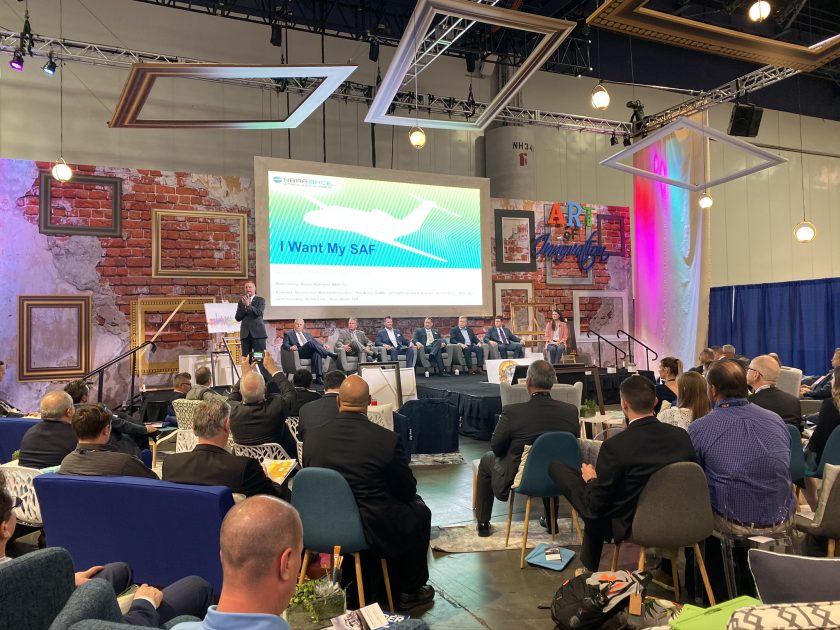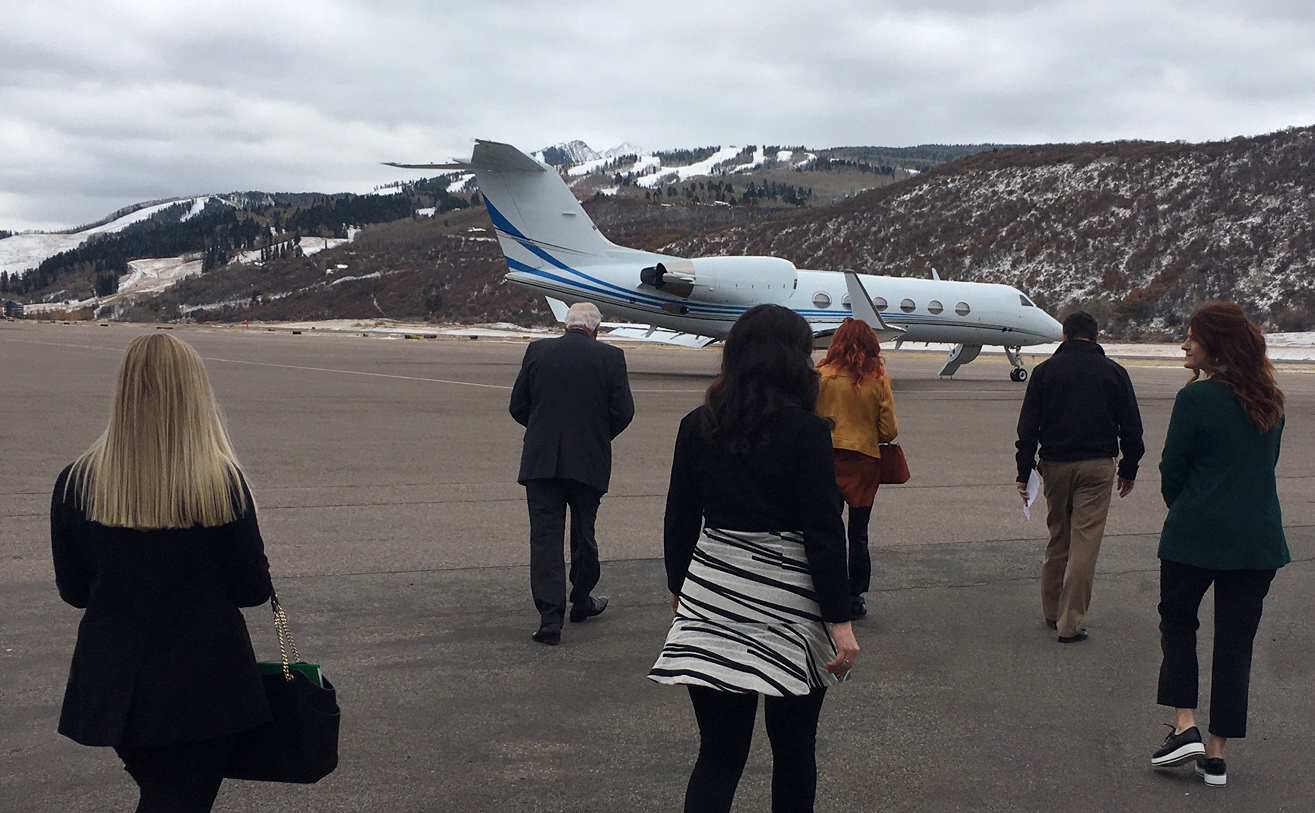The Blame Game
11.21.19 · Sonia Greteman
Maybe it’s our Air Capital base, but we take umbrage at today’s jet shaming. As the birthplace of the Learjet, which created the jet set, we understand the unique, vital role of business aviation. We’ve spent our careers showing how jets are time machines, not frivolous toys.
That said, we understand that private aviation provides an easy, high-profile target. For instance, Alphabet’s Google Camp climate-change-focused event in Sicily last summer drew more than A-list celebrities. It attracted 114 private jets. Social media was quick to point out the hypocrisy of voicing concern about global warming while squandering fossil fuel to get there. It seemed to imply: Do as I say, but not as I do.

The Case for Face to Face
Good things happen when people come together. Teleconferencing can be a decent substitute, but it can never match the magic that happens when people sit down in the same room. Look eye to eye. Shake hands. The human element is a big reason why business aviation exists. And sometimes, for the world’s movers and shakers, there is no other schedule-friendly, security-guaranteeing option to jumping on a jet.
In the UK, some quarters have begun to demand a ban in 2025 on private jets powered solely by fossil fuels. At a minimum, we can expect more stringent fuel economy and emissions regulations. We understand the wish to reduce the amount of CO2 released into the atmosphere. We all want that.

However, since there are only 20,000 or so private jets operating today, their elimination wouldn’t help much. Private jets contribute as little as .04% of the 2-3% of global emissions traced to the full aviation industry.
The industry’s efforts to wean itself from hydrocarbons have been accelerating. Everyone was talking about sustainability and new energy solutions at the National Business Aviation Association’s Business Aviation Convention & Exhibition (NBAA-BACE) last month. And that was in the go-go, never-sleep, desert oasis called Vegas. More remains to be done as the industry works through sustainable aviation fuel (SAF) pricing and availability issues. But there is a will to do it that I have not seen before.
The Push for Carbon Neutrality
World Fuel Services says its customers are starting to plan now to respond to Carbon Offsetting and Reduction Scheme for International Aviation (CORSIA) regulations taking effect next year. Through various relationships, it can provide the necessary monitoring, verification and reporting required by European Union Emission Trading Scheme (EU ETS), CORSIA and emission requirements throughout the globe.
As new countries require domestic emission programs, World Fuel can help customers navigate and incorporate emission requirements into the most cost-effective, doable sustainability plans. It helps them move beyond mere regulatory compliance to such green initiatives as converting a large hangar to solar energy for heating and cooling. A real perk of doing the right thing could be lower energy spending.

Collaboration Instead of Finger Pointing
Working together, we can gain more control of our environmental impact and achieve needed sustainability objectives. We have to. And we are.
This column originally appeared in the Nov. 21, 2019, issue of BlueSky Business Aviation News.
